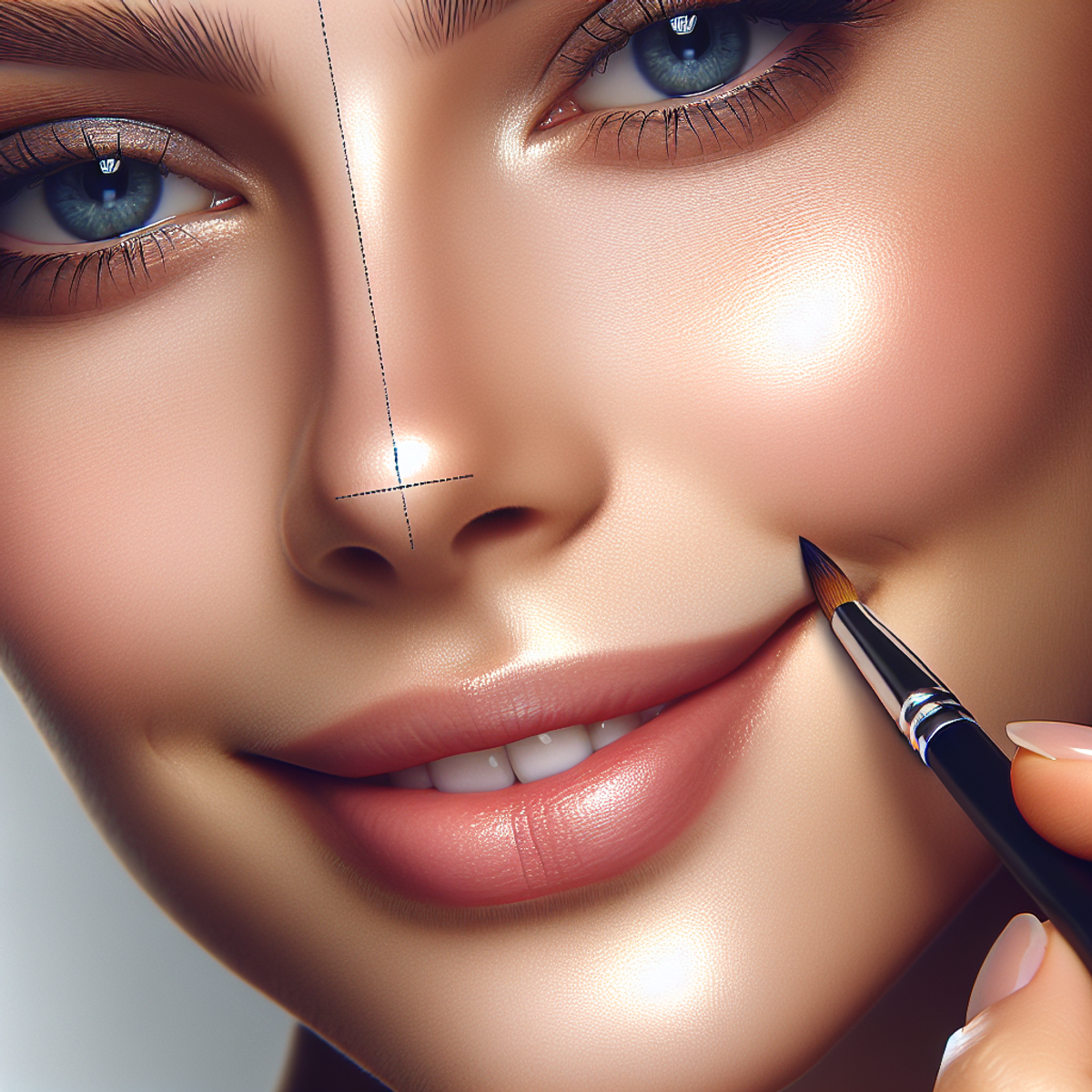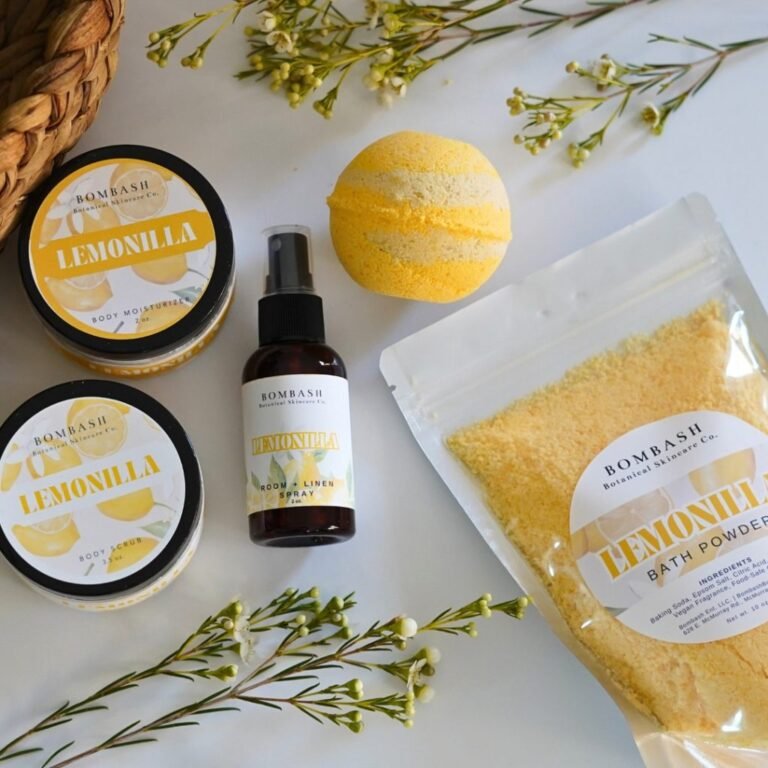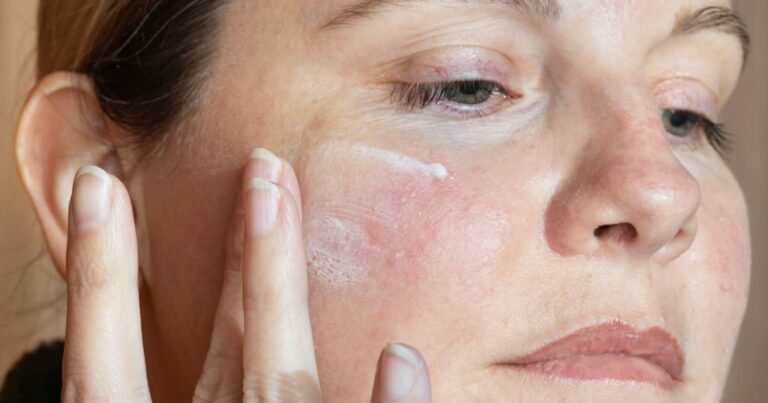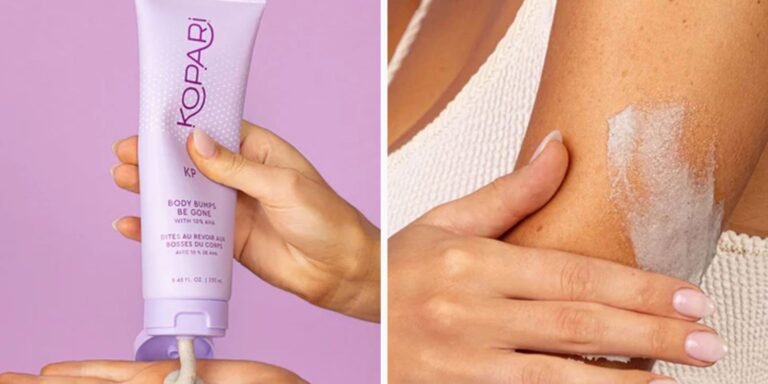A Dermatologist-Approved Skincare Routine for Adult Acne

Introduction
Adult acne is a common skin condition that affects many individuals beyond their teenage years. Unlike teenage acne, which is often linked to hormonal changes during puberty, adult acne can be caused by a variety of factors such as hormonal imbalances, stress, and lifestyle choices. The demand for effective skincare routines to manage adult acne has significantly increased in recent years, as more adults seek solutions to address their skin concerns.
Managing adult acne requires a dermatologist-approved skincare routine that targets the specific needs of adult skin. This type of routine focuses on cleansing, toning, moisturizing, and treatment to address the underlying causes of acne and promote overall skin health. By following a dermatologist-approved approach, individuals can effectively manage their adult acne and achieve clearer, healthier-looking skin.
The importance of a dermatologist-approved skincare routine for adult acne cannot be overstated. A personalized routine not only helps treat existing breakouts but also prevents future acne flare-ups. It addresses the unique challenges faced by adults with acne-prone skin and provides targeted solutions to restore balance and clarity.
In the following sections, we will explore:
- Understanding and managing adult acne
- Identifying your specific skin concerns
- Building a dermatologist-approved skincare routine for both morning and nighttime
- Exploring recommended products for treating adult acne
- Making necessary lifestyle changes to support your skincare routine
- Knowing when to seek professional help
Let’s get started!
The Importance of a Dermatologist-Approved Skincare Routine for Adult Acne
When it comes to managing adult acne, a customized skincare routine tailored to individual skin needs is essential for achieving effective results. A dermatologist-approved approach is crucial in addressing the specific concerns associated with adult acne, as it takes into account the diverse factors that contribute to this condition. By emphasizing the key elements of a good skincare routine, including cleansing, toning, moisturizing, and treatment, dermatologists can provide valuable insights into managing adult acne effectively.
Why You Need a Dermatologist for Your Acne
Here are some reasons why consulting a dermatologist for your acne is important:
- Customized Approach: Dermatologists play a pivotal role in guiding individuals towards a skincare routine that is tailored to their unique skin type and concerns. This personalized approach ensures that the products and treatments selected are well-suited to address the individual’s specific skincare needs.
- Professional Expertise: Seeking guidance from a dermatologist ensures access to professional expertise in understanding the underlying causes of adult acne. Dermatologists can identify hormonal imbalances, lifestyle factors, and other triggers that may contribute to the development of acne, thereby enabling them to recommend targeted treatments and preventive measures.
- Comprehensive Care: A dermatologist-approved skincare routine offers comprehensive care by addressing multiple aspects of skincare, such as cleansing to remove impurities, toning to balance the skin’s pH levels, moisturizing to maintain hydration, and targeted treatments to address acne symptoms.
- Optimal Product Selection: With a multitude of skincare products available in the market, it can be overwhelming for individuals to identify the most suitable options for their specific skin concerns. Dermatologists can recommend clinically-proven products that are effective in managing adult acne without exacerbating existing skin issues.
By acknowledging the importance of a dermatologist-approved approach, individuals can gain valuable insights into developing a skincare routine that aligns with their unique skin requirements. This proactive strategy empowers individuals to address adult acne with confidence and ensures that they receive tailored guidance from skincare experts who understand the complexities of adult acne management.
Understanding and Managing Adult Acne
When it comes to understanding and managing adult acne, it’s essential to delve into the various factors that contribute to its development. Adult acne differs from teenage acne in its underlying causes, making it crucial to address these specific triggers for effective management.
Causes of Adult Acne
Hormonal Changes
Hormonal imbalances play a significant role in adult acne, particularly in women. Fluctuations in hormone levels, such as those experienced during menstruation, pregnancy, or menopause, can lead to increased sebum production and clogged pores, resulting in acne flare-ups.
Stress
Stress is known to have a direct impact on skin health, and chronic stress can exacerbate adult acne. Elevated stress levels trigger the release of cortisol, a hormone that can stimulate sebaceous glands to produce more oil. This excess oil production can contribute to the development of acne.
Lifestyle Factors
Various lifestyle choices can influence the prevalence of adult acne. Factors such as diet, smoking, and exposure to environmental pollutants may contribute to skin inflammation and an increased likelihood of experiencing acne breakouts.
Understanding these underlying causes is pivotal in devising an effective skincare routine tailored to address adult acne comprehensively. By identifying the specific triggers that may be exacerbating your acne, you can take targeted steps toward managing and minimizing its impact on your skin.
Identifying Your Skin Type and Concerns
When it comes to developing a dermatologist-approved skincare routine for adult acne, one of the first steps is to identify your specific skin type and concerns. This knowledge will help you select the right products and treatments that target your individual needs effectively. Here’s a guide to help you determine your skin type and address any primary concerns you may have:
1. Skin Type
- Normal: If your skin is balanced, not too oily or dry, and without major concerns, you likely have normal skin.
- Dry: If your skin feels tight, flaky, or rough, especially after cleansing, you likely have dry skin.
- Oily: If your skin appears shiny, particularly in the T-zone (forehead, nose, and chin), and is prone to breakouts, you likely have oily skin.
- Combination: If you experience both dryness and oiliness in different areas of your face, such as an oily T-zone but dry cheeks, you likely have combination skin.
- Sensitive: If your skin reacts easily to certain products with redness, itching, or irritation, you likely have sensitive skin.
2. Common Skin Concerns
- Acne: Adult acne can manifest in various forms such as blackheads, whiteheads, pimples, or cysts. Identifying the specific type of acne can help determine the most suitable treatment approach.
- Hyperpigmentation: Dark spots or patches on the skin resulting from previous breakouts or sun damage are common concerns for individuals with adult acne.
- Aging signs: Some adults may also experience signs of aging alongside acne concerns. These can include fine lines, wrinkles, and loss of elasticity.
By understanding your unique skin type and concerns, you can tailor your skincare routine to address them effectively. This will ensure that the products and treatments you choose are suitable for your skin’s specific needs, helping you achieve clearer and healthier-looking skin.
Building Your Dermatologist-Approved Skincare Routine
When it comes to building a dermatologist-approved skincare routine for adult acne, there are several key elements to consider. From product selection to understanding the importance of certain ingredients, each step plays a crucial role in effectively managing and treating adult acne. Here’s a breakdown of the morning skincare routine:
1. Morning Skincare Routine
- Gentle Cleansing: The first step in any skincare routine is cleansing. In the morning, it’s important to gently cleanse your face to remove any overnight impurities that may have accumulated. Look for a mild cleanser specifically formulated for acne-prone or sensitive skin. Avoid harsh scrubs or cleansers that contain irritants like sulfates or fragrances, as they can strip away natural oils and disrupt the skin barrier.
- Toning: After cleansing, toning is an essential step that often gets overlooked. Toners help balance the skin’s pH levels and remove any residual impurities that may have been left behind after cleansing. There has been some discussion about whether toner is a necessary step in skincare routines, but most experts agree that it can be beneficial. Look for toners that are alcohol-free and contain soothing ingredients like witch hazel or rose water. These can help calm inflammation and prepare the skin for the next steps in your routine.
- Moisturizing: Contrary to popular belief, even acne-prone skin needs hydration. Using a lightweight, non-comedogenic moisturizer in the morning helps maintain the skin’s moisture balance without clogging pores. A popular option for this step is the CeraVe Hydrating Cleanser, which contains ingredients like hyaluronic acid or ceramides, providing hydration without adding excess oil to the skin. Don’t skip this step, as properly moisturized skin is better equipped to defend against external stressors and maintain overall skin health.
Remember, consistency is key when it comes to skincare routines. Stick to this morning routine every day to see optimal results. Now let’s move on to the nighttime skincare routine.
2. Nighttime Skincare Routine
- Double Cleansing: In the evening, it’s important to thoroughly remove makeup, sunscreen, and any buildup of dirt and oil from the day. Double cleansing is an effective method that involves using an oil-based cleanser first to dissolve makeup and impurities, followed by a gentle water-based cleanser to remove any remaining residue. This ensures a deep cleanse without stripping the skin of its natural oils.
- Exfoliation: Exfoliating your skin at night helps promote cell turnover and unclog pores, preventing congestion and breakouts. Look for chemical exfoliants that contain ingredients like salicylic acid or glycolic acid. These gently exfoliate the skin by dissolving dead skin cells and unclogging pores, leaving your complexion smoother and more refined.
- Treating Acne: After cleansing and ex
2. Nighttime Skincare Routine
A solid nighttime skincare routine is just as important as your morning routine when it comes to managing adult acne. During this time, your skin repairs and rejuvenates itself, making it the perfect opportunity to target acne-causing factors and promote healthy skin cell turnover. Here are some key steps to include in your dermatologist-approved nighttime skincare routine:
1. Double Cleansing for Thorough Makeup Removal and Deep Pore Cleansing
Double cleansing involves using an oil-based cleanser followed by a water-based cleanser. This technique ensures that all traces of makeup, dirt, and excess oil are effectively removed from your skin. The oil-based cleanser helps to break down and dissolve any oil-based impurities, such as sunscreen and makeup, while the water-based cleanser removes any remaining residue.
To double cleanse properly:
- Start with an oil-based cleanser like [Product Name] which contains nourishing oils like jojoba or grapeseed oil.
- Massage it onto dry skin to dissolve makeup and impurities.
- Rinse off with warm water before moving on to the next step with a gentle water-based cleanser like [Product Name], which is formulated with salicylic acid or benzoyl peroxide to target acne-causing bacteria.
2. Incorporating Exfoliation into Your Nighttime Routine
Exfoliation is a crucial step in preventing congestion and promoting healthy cell turnover. By removing dead skin cells from the surface of your skin, you can prevent clogged pores and reduce the occurrence of acne breakouts. However, it’s important to choose the right exfoliator for your skin type.
If you have sensitive or dry skin:
- Opt for a gentle chemical exfoliant containing alpha-hydroxy acids (AHAs) like glycolic acid or lactic acid.
- These ingredients help to gently dissolve dead skin cells without causing irritation.
If you have oily or acne-prone skin:
- A salicylic acid-based exfoliant can effectively unclog pores and reduce inflammation.
Consider using:
- [Product Name], which contains gentle AHAs that are suitable for all skin types.
- [Product Name] with 2% salicylic acid for oily or acne-prone skin.
Start by using these products once or twice a week and gradually increase the frequency as tolerated.
3. Treating Adult Acne with Targeted Spot Treatments or Serums
To specifically target adult acne, incorporating spot treatments or serums into your nighttime routine can be highly beneficial. Look for products that contain ingredients like benzoyl peroxide, salicylic acid, or retinol to address acne-causing bacteria, unclog pores, and promote skin cell turnover.
Apply a thin layer of [Product Name] to any active breakouts. This spot treatment contains benzoyl peroxide to kill acne-causing bacteria and reduce inflammation. Alternatively, consider using [Product Name] which contains salicylic acid to exfoliate the skin and prevent future breakouts.
4. Moisturizing for Hydration and Repair
Even if you have oily or acne-prone skin, moisturizing is an essential step in your nighttime routine. Look for oil-free and non-comedogenic moisturizers that provide hydration without clogging pores.
Dermatologist-Recommended Products for Adult Acne Treatment
Importance of Sunscreen Protection
Including sunscreen protection as a crucial part of your acne-fighting skincare routine is essential. Sun exposure can make acne worse and lead to dark spots on the skin, so using sunscreen is important for keeping your skin healthy.
Dermatologist-Recommended Products
Using skincare products that are recommended by dermatologists can make a big difference in how well you manage your adult acne. Here are some top recommendations for each step of your skincare routine:
Cleansers
- CeraVe Acne Foaming Cream Cleanser: This cleanser contains benzoyl peroxide, which helps clear up acne and prevent new breakouts. It’s gentle on the skin while still being effective.
- La Roche-Posay Effaclar Medicated Gel Cleanser: This medicated gel cleanser targets excess oil and helps clear breakouts.
Toners
- Paula’s Choice Skin Balancing Pore-Reducing Toner: This toner is great for balancing out oily areas, minimizing large pores, and reducing inflammation.
Medicated Treatments
- Differin Adapalene Gel 0.1% Acne Treatment: Previously only available with a prescription, this retinoid gel now can be bought over the counter. It works by normalizing skin cell turnover and reducing inflammation deep within the skin to clear and prevent acne.
Moisturizers
- Cetaphil Pro Oil Absorbing Moisturizer SPF 30: This moisturizer not only hydrates the skin but also provides sun protection with its broad-spectrum SPF 30 formula. It’s specifically designed to absorb excess oil, giving your skin a matte finish.
Sunscreens
- EltaMD UV Clear Broad-Spectrum SPF 46: This lightweight sunscreen is perfect for those with sensitive skin that’s prone to breakouts, rosacea, and discoloration. It’s oil-free and doesn’t clog pores.
By using these dermatologist-recommended products as part of your skincare routine, you can effectively treat your adult acne while also taking care of your overall skin health. Remember to speak with a dermatologist to get personalized recommendations based on your specific skin type and concerns.
Lifestyle Changes to Support Your Skincare Routine
Making certain lifestyle modifications can play a significant role in managing adult acne effectively. By incorporating healthy habits and stress reduction techniques into your daily routine, you can complement the benefits of topical treatments and promote overall skin health. Here are some key points to consider:
1. Dietary Adjustments
- Incorporate Skin-Friendly Foods: Include foods rich in antioxidants, vitamins A, C, and E, omega-3 fatty acids, and zinc. These nutrients help reduce inflammation, support skin repair, and regulate oil production.
- Avoid Trigger Foods: Certain foods, such as dairy products, high-glycemic-index foods, and processed sugars, may exacerbate acne symptoms in some individuals. It can be helpful to identify any specific food triggers that may worsen your acne and avoid them.
2. Stress Management Techniques
- Practice Mindfulness: Engage in activities like meditation, deep breathing exercises, or yoga to reduce stress levels. Stress can contribute to hormonal imbalances and trigger acne flare-ups.
- Get Adequate Sleep: Aim for 7-9 hours of quality sleep each night. Sufficient rest helps regulate hormone production and promotes overall skin health.
- Engage in Physical Activity: Regular exercise not only helps reduce stress but also improves blood circulation and supports detoxification processes in the body.
3. Avoid Excessive Skin Irritation
- Be Gentle with Your Skin: Avoid aggressive scrubbing or using harsh products that can strip the skin of its natural oils. Opt for gentle cleansers and avoid over-exfoliating, as this can lead to irritation and inflammation.
- Cleanse After Sweating: If you engage in physical activities that cause sweating, make sure to cleanse your skin afterward to remove sweat and prevent pore clogging.
4. Maintain Good Hygiene Practices
- Cleanse Before Bed: Ensure that you remove all makeup, dirt, and impurities from your skin before going to bed. This helps prevent pore congestion and breakouts.
- Change Pillowcases Regularly: Dirty pillowcases can harbor bacteria and oil that can transfer onto your skin while you sleep. Change your pillowcases at least once a week to maintain skin hygiene.
5. Avoid Touching Your Face
- Hands Off: Refrain from touching your face throughout the day. Your hands come into contact with various surfaces that may harbor bacteria, which can transfer onto your skin and contribute to acne development.
Remember, lifestyle changes should be combined with a comprehensive dermatologist-approved skincare routine for optimal results. While these modifications can support the health of your skin, they may not completely eliminate acne on their own. Be patient and consistent in both your skincare routine and lifestyle adjustments to see improvements over time.
Knowing When to Seek Professional Help
It’s important to know when you should seek help from a professional for your adult acne. Here are some signs that indicate the need for seeing a dermatologist and exploring professional acne treatments:
Signs You Should See a Dermatologist
- Persistent and Severe Acne: If your acne is long-lasting, very severe, or causing scarring, it’s crucial to get professional help. Products you can buy without a prescription may not be strong enough for severe cases of adult acne.
- No Improvement with Home Care: If you’ve been using a skincare routine recommended by a dermatologist for a long time but haven’t seen any improvement, it’s time to talk to a professional. A dermatologist can examine your skin condition and suggest more advanced treatment options.
- Psychological Impact: Acne can have a big effect on how you feel emotionally and how you see yourself. If your acne is making your mental health worse, it’s important to get help from a professional. Taking care of both your body and mind is essential.
Medical Treatments for Adult Acne
Professional help may involve different medical treatments, such as:
- Oral Medications: Dermatologists might prescribe oral medications like antibiotics, hormonal therapy, or isotretinoin (Accutane) for severe or long-lasting adult acne.
- In-Office Procedures: Dermatologists can do procedures in their office like chemical peels, laser therapy, or extractions to treat stubborn acne and stop scarring.
When thinking about getting professional help for adult acne, it’s important to take action and ask a dermatologist for advice. They can create a treatment plan that’s made just for you and your skin problems. Remember that everyone’s skin is different, so what works for one person might not work for another. That’s why having personalized advice from a professional is so helpful when you’re trying to manage adult acne well.
Final Thoughts
When it comes to adult acne, it’s important to remember that everyone’s skin is unique. What works for one person may not work for another. That’s why it’s crucial to take a proactive approach in developing a personalized dermatologist-approved skincare routine.
Here are some key points to keep in mind:
- Patience is key: Results may not happen overnight. It takes time for skincare products to work their magic, so don’t get discouraged if you don’t see immediate improvements.
- Consistency is key: Stick to your skincare routine religiously. Skipping steps or using products sporadically can hinder progress.
- Listen to your skin: Pay attention to how your skin reacts to certain products or ingredients. If something is causing irritation or making your acne worse, stop using it immediately and consult with a dermatologist.
- Don’t forget about self-care: Skincare isn’t just about the products you use; it’s also about taking care of yourself holistically. Get enough sleep, manage stress levels, eat a balanced diet, and stay hydrated.
By following these tips and working closely with a dermatologist, you can effectively manage your adult acne and achieve healthier, clearer skin in the long run.
Remember, there is no one-size-fits-all solution when it comes to skincare. What works for someone else may not work for you, and that’s okay. Stay patient, stay consistent, and most importantly, be kind to yourself throughout this journey towards better skin!










